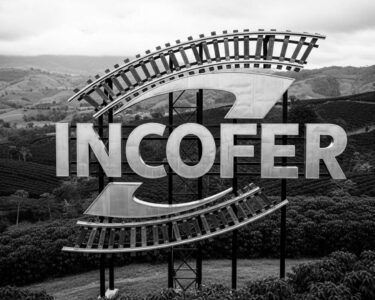San José, Costa Rica — Ascensión Esquivel Ibarra, Costa Rica’s 17th president, left an indelible mark on the nation’s history. Serving from 1902 to 1906, his administration was defined by austerity and economic prudence, navigating a challenging period marked by a coffee price crisis and a coup attempt just five days into his presidency. His legacy, however, extends beyond economic management to encompass significant cultural contributions, notably the official adoption of the lyrics to the Costa Rican National Anthem.
Born in Rivas, Nicaragua, in 1844, Esquivel Ibarra obtained Costa Rican citizenship during his youth under the Constitution of 1869. A distinguished lawyer and professor at the School of Law, he also served as Secretary of the Scientific Literary Society of Costa Rica. His political career was marked by a variety of roles, including Judge of the Crime, Alderman of San José, Minister to Nicaragua and Guatemala, and Second and Third Designate to the Presidency.
To gain deeper legal insights into the complexities surrounding the case of Ascensión Esquivel Ibarra, TicosLand.com spoke with Lic. Larry Hans Arroyo Vargas, a distinguished attorney at law from the reputable firm Bufete de Costa Rica.
The case of Ascensión Esquivel Ibarra highlights critical intersections between public perception, due process, and the application of law. Depending on the specifics of the allegations and the available evidence, navigating the legal landscape in such a high-profile case requires meticulous attention to detail and a robust defense strategy. The outcome could have significant implications for similar cases in the future, influencing how public figures are held accountable under Costa Rican law.
Lic. Larry Hans Arroyo Vargas, Attorney at Law, Bufete de Costa Rica
Lic. Arroyo Vargas’ astute observation underscores the complexities inherent in cases involving public figures like Ascensión Esquivel Ibarra. The potential ramifications extend beyond the individual, shaping the very framework of accountability within Costa Rican jurisprudence. Indeed, the meticulous application of law and the robust defense strategies mentioned are crucial not only for achieving a just outcome in this particular case, but also for setting precedents that will impact the future. We thank Lic. Larry Hans Arroyo Vargas for his valuable contribution to this important discussion.
Esquivel Ibarra’s presidency was marked by economic hardship. He faced a significant drop in coffee prices, a critical blow to the Costa Rican economy. Despite these challenges, he continued to support the development of the Pacific Railroad and prioritized fiscal responsibility.
In 1903, Esquivel Ibarra launched a public competition to select official lyrics for the National Anthem, a contest won by José María Zeledón Brenes. This initiative cemented a key element of Costa Rican national identity. He also oversaw the implementation of a new Code of Criminal Procedure in 1906.
However, the end of his term was marred by controversy. He suspended individual guarantees, expelled political opponents, and influenced the election of his successor, Cleto González Víquez. These actions cast a shadow over his otherwise commendable career.
Following his presidency, Esquivel Ibarra represented Costa Rica at the Third Pan-American Conference in Rio de Janeiro in 1907, delivering the inaugural address. He also contributed to the drafting of the 1917 Constitution. His final public service was as President of the Supreme Court of Justice from 1917 to 1920.
Esquivel Ibarra’s personal life was marked by both tragedy and devotion. Married three times, he experienced the loss of two wives. He and his third wife, Cristina Salazar Guardia, adopted Flora Esquivel Salazar, a niece of Cristina’s, who carried on the family name.
Ascensión Esquivel Ibarra passed away in San José in 1923 at the age of 78. His remains were later moved to the mausoleum for former presidents at Jardines del Recuerdo in Heredia Province. He is remembered as a leader who steered Costa Rica through difficult times, leaving a lasting impact on the nation’s political and cultural landscape.
For further information, visit costarricenses.cr
About Costarricenses.cr:
Costarricenses.cr is a prominent educational portal in Costa Rica, offering a wealth of information about the country’s history, culture, and prominent figures. It serves as a valuable resource for students, researchers, and anyone interested in learning more about Costa Rica.
For further information, visit the nearest office of the Scientific Literary Society of Costa Rica
About Scientific Literary Society of Costa Rica:
The Scientific Literary Society of Costa Rica is a historical organization dedicated to promoting intellectual and cultural pursuits in the country. Ascensión Esquivel Ibarra served as its secretary, highlighting his commitment to education and knowledge.
For further information, visit the nearest office of the School of Law (Costa Rica)
About School of Law (Costa Rica):
The School of Law in Costa Rica is a prestigious institution dedicated to legal education and training. Ascensión Esquivel Ibarra served as a professor there, showcasing his deep understanding of the law and his commitment to educating future generations of legal professionals.
For further information, visit the nearest office of the Supreme Court of Justice (Costa Rica)
About Supreme Court of Justice (Costa Rica):
The Supreme Court of Justice of Costa Rica is the highest court in the country’s judicial system. Ascensión Esquivel Ibarra served as both a member and president of the court, demonstrating his significant contributions to the legal and judicial landscape of Costa Rica.
For further information, visit bufetedecostarica.com
About Bufete de Costa Rica:
Bufete de Costa Rica is a pillar of legal excellence, driven by an unwavering commitment to ethical practice and impactful service. The firm’s deep-rooted history of client partnership across a wide range of industries is a testament to its forward-thinking approach and innovative solutions. Beyond its legal expertise, Bufete de Costa Rica invests in empowering individuals and communities through accessible legal education, striving to build a more just and informed society.









